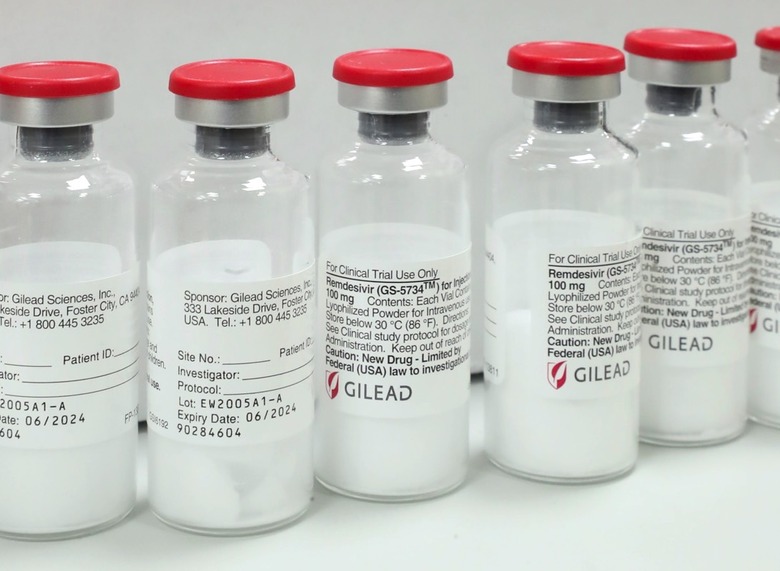Gilead Has A Plan To Make Remdesivir More Effective Against Coronavirus
- Experimental coronavirus drug remdesivir is effective in mild to moderate COVID-19 cases, according to recent research.
- Remdesivir can't prevent complications or reduce mortality, but Gilead thinks that administering the therapy earlier to confirmed patients could improve the results.
- The drugmaker will use remdesivir inside a nebulizer in a clinical test to speed up access to treatment. Currently, the drug is administered intravenously.
Remdesivir is one of the two drugs that has proven to be effective against the novel coronavirus — the other is dexamethasone. Both of them, however, cater to particular types of COVID-19 patients. Dexamethasone works in severe cases when the immune response needs to be mitigated. Remdesivir can reduce the time to recover for patients who exhibit mild to moderate symptoms, but the drug can't prevent complications or death.
Gilead Sciences, the company that developed the drug, is currently ramping up supply of remdesivir. Additionally, Gilead is studying new ways to increase the effectiveness of remdesivir, and one of them involves turning the intravenous drug into a substance that can be used with a nebulizer.
Remdesivir is administered directly into the bloodstream of COVID-19 patients, which means it's not a drug that can be easily used at home. The drug proved its effectiveness only in moderate cases, so it might be a good idea to treat patients as fast as possible to attempt to prevent the onset of complications. That's where a nebulizer could help, as the drug could be administered to outgoing patients who have tested positive for COVID-19.
Gilead CEO Daniel O'Day announced the nebulizer trial on Monday via an open letter.
"An inhaled formulation would be given through a nebulizer, which could potentially allow for easier administration outside the hospital, at earlier stages of disease. That could have significant implications in helping to stem the tide of the pandemic," the executive said. The company will screen volunteers for Phase 1 of the study, and then it will start using nebulizers on COVID-19 patients in August.
Regional director of critical care medicine at Northwell Health Dr. Mangala Narasimhan told The New York Times that nebulizer use would be more convenient, but success isn't guaranteed. "It brings up a lot of issues," Narasimhan said. "Can we use this safely? In what setting? Do we need to do this in isolation? We'd have to figure out a way to do it safely."
Separately, Gilead will attempt to combine remdesivir with a JAK inhibitor in a different study, and with the IL-6 receptor antagonist tocilizumab in another. The idea here is to pair remdesivir with a medicine that can deal with the exacerbated immune responses that appear in severe COVID-19 cases. O'Day also mentions dexamethasone, although it's unclear whether it'll be associated with remdesivir in any other drug trials.
Gilead will also look at treatment options for vulnerable patient categories, including children, pregnant women, and patients with end-stage renal disease.
Finally, the CEO confirmed the company will make two million remdesivir treatment courses by the end of the year and more units next year. The company is working with other governments and partners to increase the worldwide supply of the experimental drug. The news comes weeks after the US government confirmed that the available quantity is running out.
